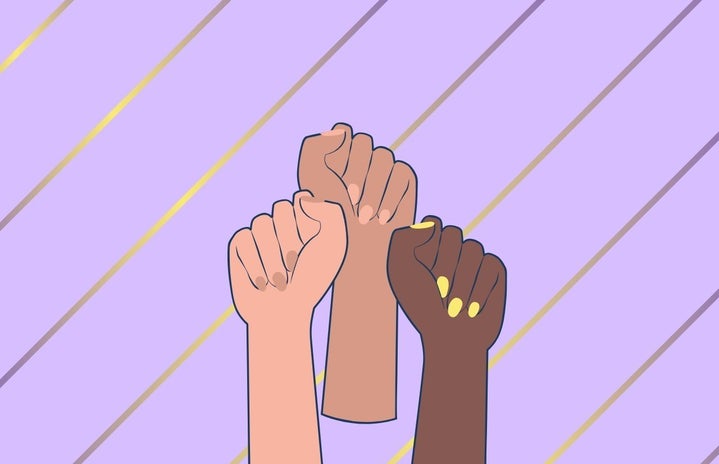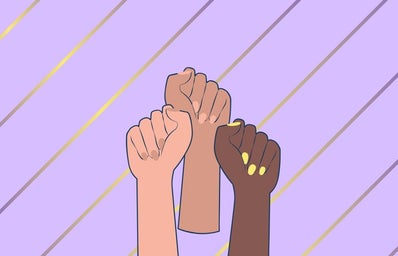Accent Speakers Bureau, an agency of UF Student Government, hosted an hour-long virtual event with women’s rights activist and youngest Nobel Peace Prize recipient Malala Yousafzai on Nov. 18, the fourth Accent event this semester.
Yousafzai began her fight for women’s rights as an education activist in Pakistan and continues her advocacy through the Malala Fund. She wants to ensure progress through challenging current policies to provide access to twelve years of free education for girls.
“Ms. Yousafzai is one of the most recognizable and inspiring figures around the world today. In addition to her life of activism, Ms. Yousafzai is also an author and the youngest laureate of the Nobel Peace Prize and accomplished all these feats before even graduating Oxford University this past Spring,” Accent Chair Steven Wolf said. “We thought she’d be the perfect speaker to discuss her life story, her work with the Malala Fund, which gives girls all around the world the opportunity to get an education and the next steps she plans to take in her career.”
Wolf reached out to Yousafzai’s agency and was able to speak to her agent on the phone. After an exchange of speaking fees, an offer was accepted, and the plan for Yousafzai to speak to UF was solidified. This hour-long event encompassed a telling of her life story, advocacy for girls’ education and her own future moderated by Moni Basu, former CNN writer and current UF journalism lecturer.
Yousafzai’s story is globally known. At 15 years old, she was shot on the left side of her head on her way home from school. At 17 years old, she became the youngest Nobel Peace Prize Winner for her advocacy of girls’ access to education. She remains a prominent activist today through her fund, has become a published author and recently graduated from Oxford University with a degree in philosophy, politics and economics (PPE).
Inspired by her father who taught at an all-girls school in Pakistan, Yousafzai spoke out about the Taliban’s strict laws banning girls from education. Consequently, the Taliban shot Yousafzai in 2012. However, following her recovery in 2013, she continued to advocate for girls’ education, co-founded the Malala Fund, published her autobiography “I Am Malala” and accomplished her goal of graduating from a prestigious university.
Within the global issue of girls’ education, the role men play is inevitably discussed. Men have a responsibility to act in this issue, while also representing the origins of the issue at hand. Some of Yousafzai’s classmates also began advocating for their rights but were ultimately silenced by their brothers and fathers.
“My father allowed me to speak, he did not stop me. I was just a girl who wanted to get her education and speak for her right,” Yousafzai said. “He was a feminist before he even knew the word feminism.”
Feminism is a divisive term today and is at the core of Yousafzai’s cause. “Feminism is equality,” Yousafzai said. “Women should not be stopped. Women should not be treated less fairly because of their gender. That’s the fight feminism is calling for.”
Stopping women from receiving an education consequently impedes economic progress. Governments can either disengage half of the population from the economy or create growth by granting women education.
According to Yousafzai, when girls receive an education there is potential for a $30 trillion increase in the economy. Empowering women reduces war, helps combat climate change and increases safety and protection for girls. When girls receive education, they are free to live independent lives and are less likely to get married before age 18. There are a plethora of benefits to empowering women through education, yet it remains a problem — a problem Yousafzai has committed her efforts to solve.
Amidst crises like the current COVID-19 pandemic, education is a topic often excluded from global conversations. People need to be reminded of why education is important, and this constant justification does not deter Yousafzai.
“The reasons are so obvious, but you have to keep on saying it and remind people that education is important,” Yousafzai said. “If you do not continue your advocacy [issues of education] will never be brought up on those platforms.”
130 million girls do not have access to education, and now, due to COVID-19, 20 million girls are at risk of not being able to return to school.
The Malala Fund currently invests in eight countries, with $22 million in programs and 62 education champions. Through the Education Champion Network, the fund invests in this network rather than schools themselves to create broader change. These networks require funding to increase their impact.
“We need to ensure we keep on prioritizing the issue of girls’ education. Governments need to make a commitment to funding, focusing on secondary education of girls,” Yousafzai said. Girls require education about their rights in addition to learning to read and write.
Yousafzai mentioned the availability of technology that could be implemented to the most marginalized students in remote areas. Spreading these technologies throughout regions where girls are missing out could aid in expanding girls’ education.
Within the next five years, Malala Fund plans to increase investment in a network of education advocates in an additional ten countries, at a pace of one to two countries each year. Years of progress can easily be undone, and continued advocacy is vital to her cause.
“I think that it is important we keep listening to ourselves. The world does not change itself. Someone steps up and changes it,” Yousafzai said. “The young people need to act now.”
To learn more about how you can assist in expanding girls’ education worldwide, visit malala.org to find why girls are out of school, how these champions and activists are fighting against these problems and what you can do to help.


